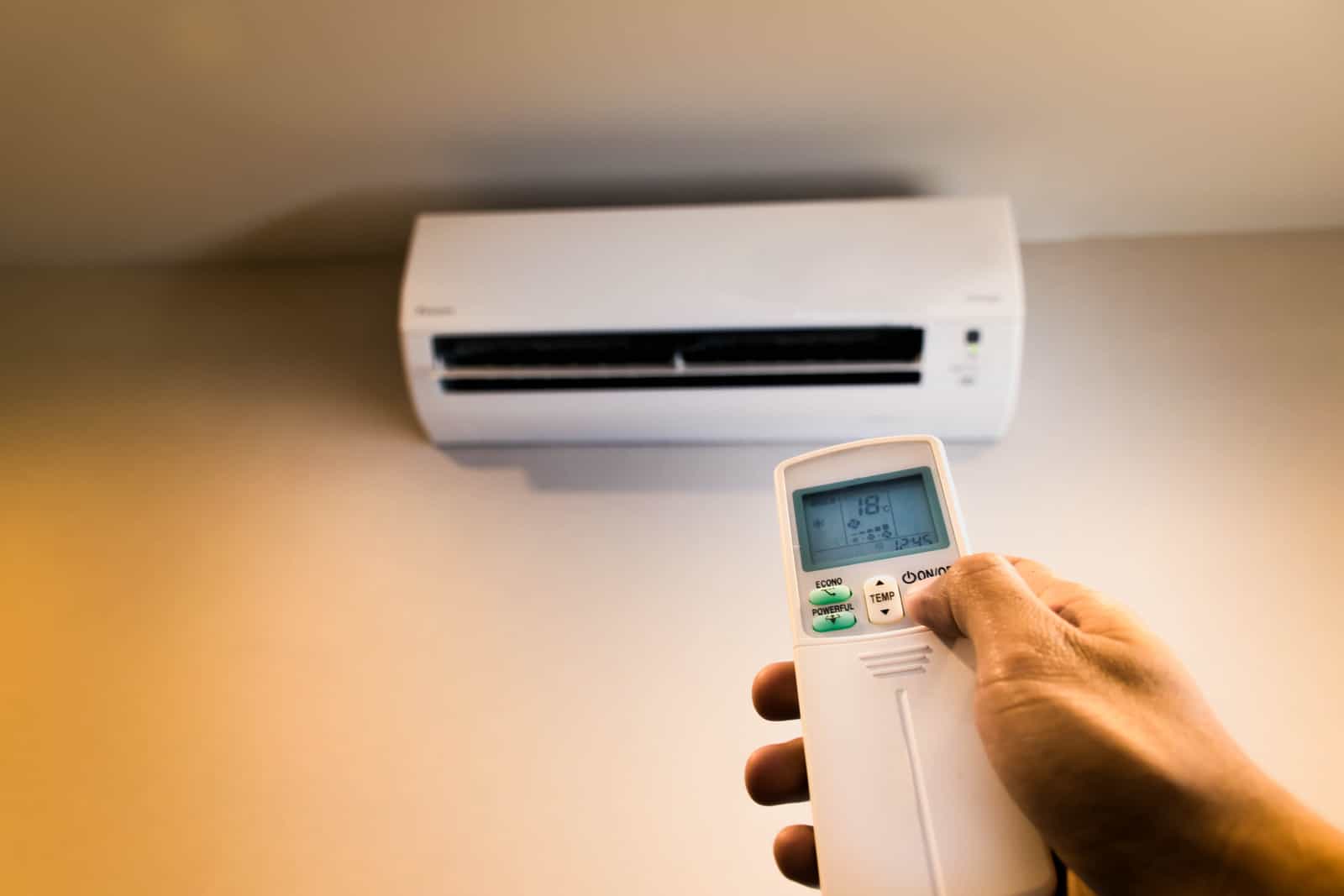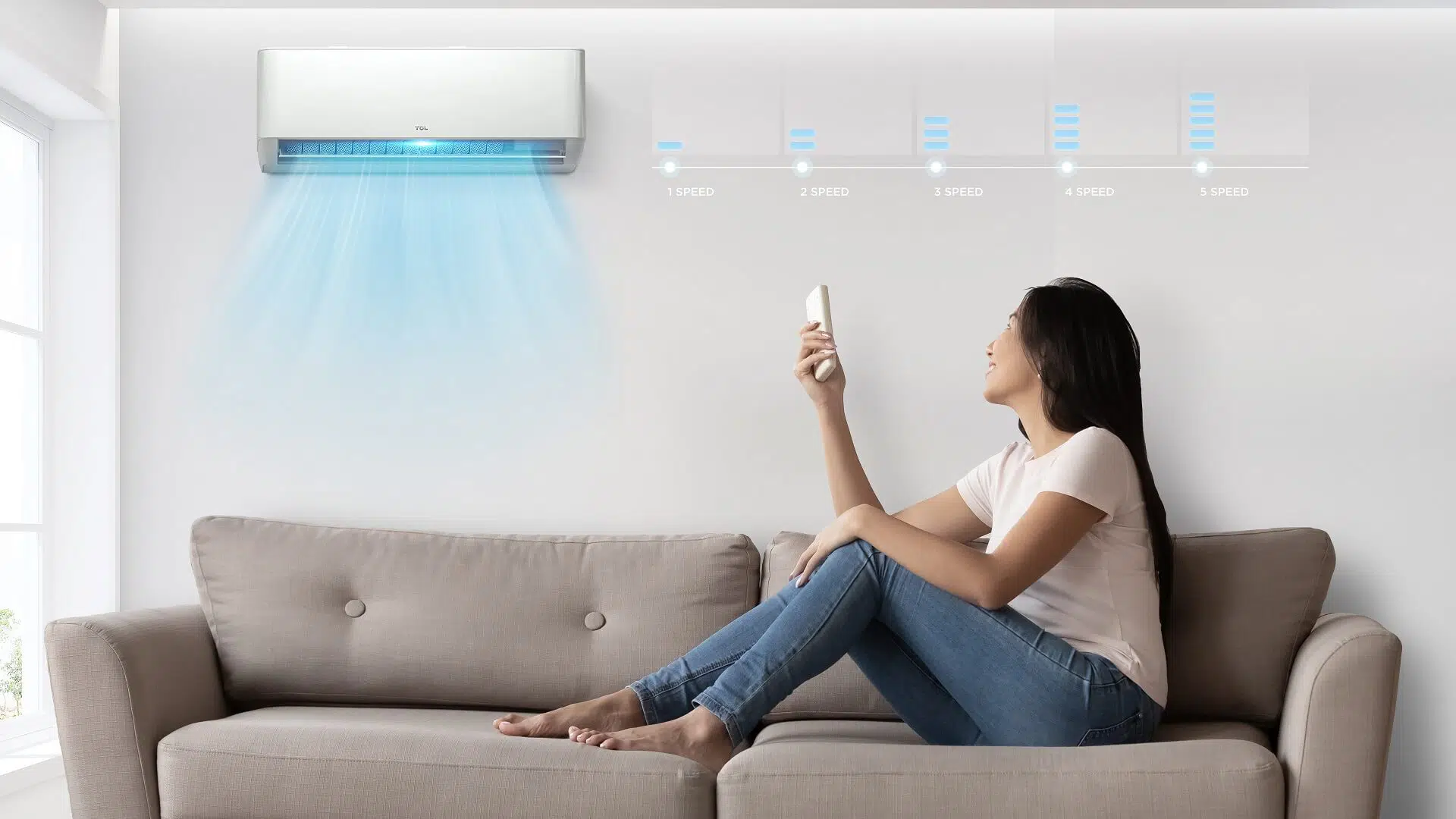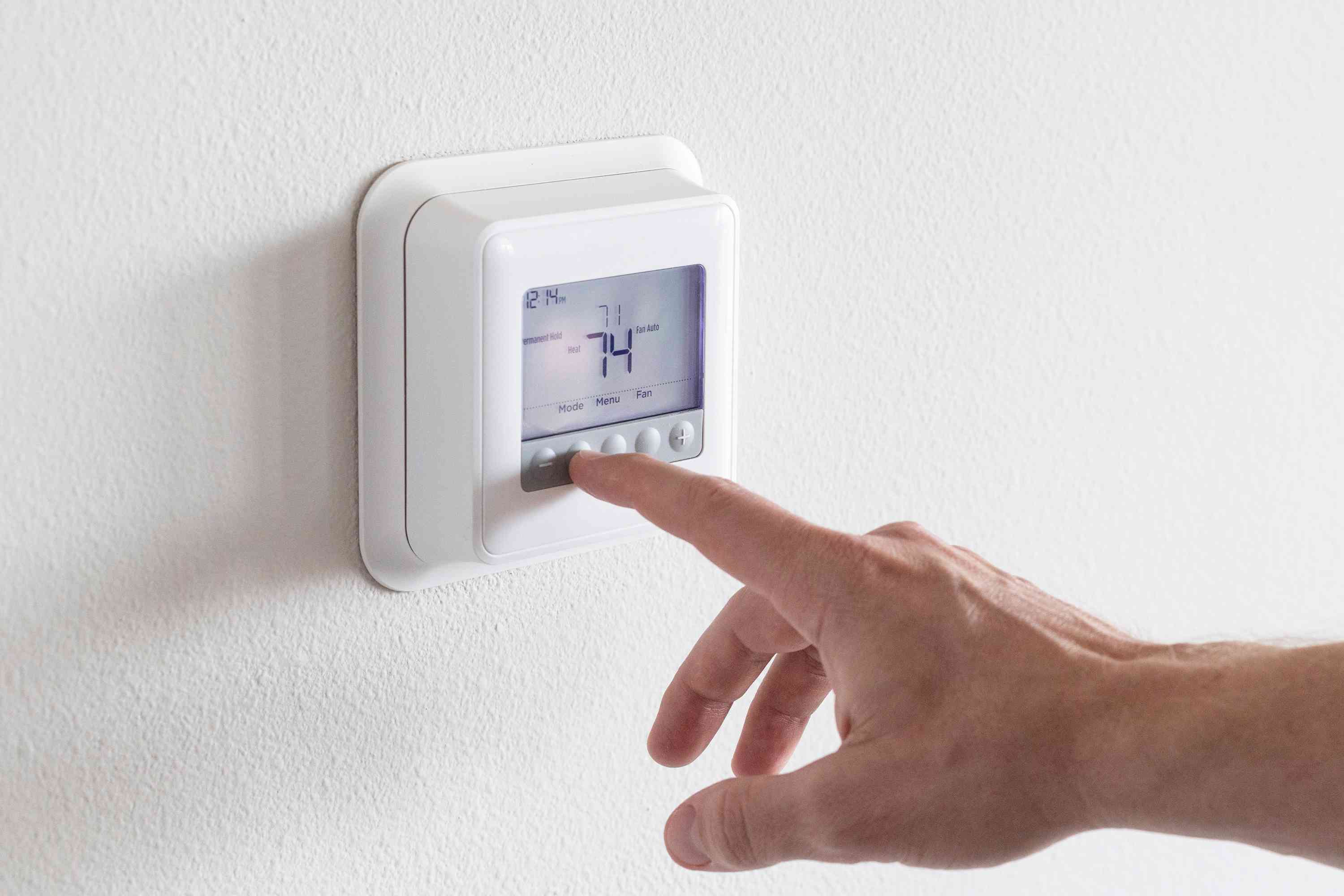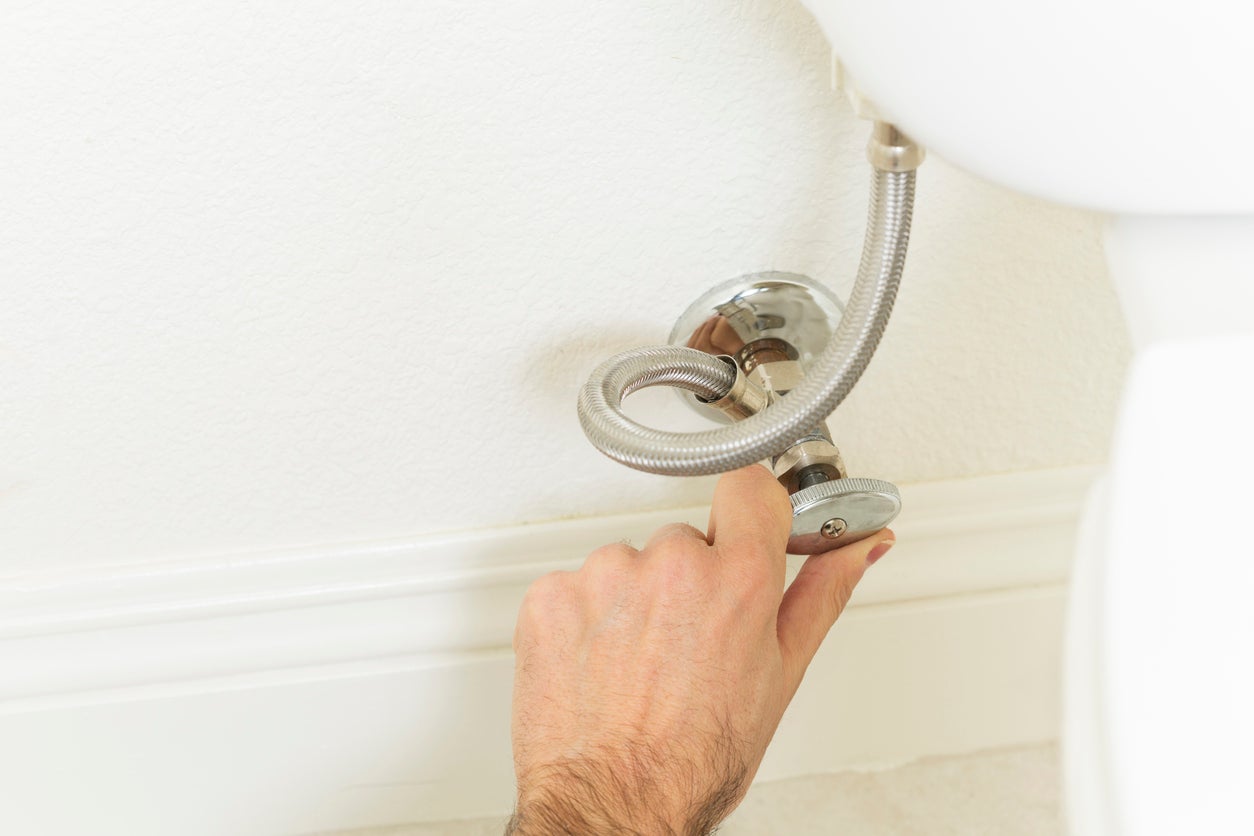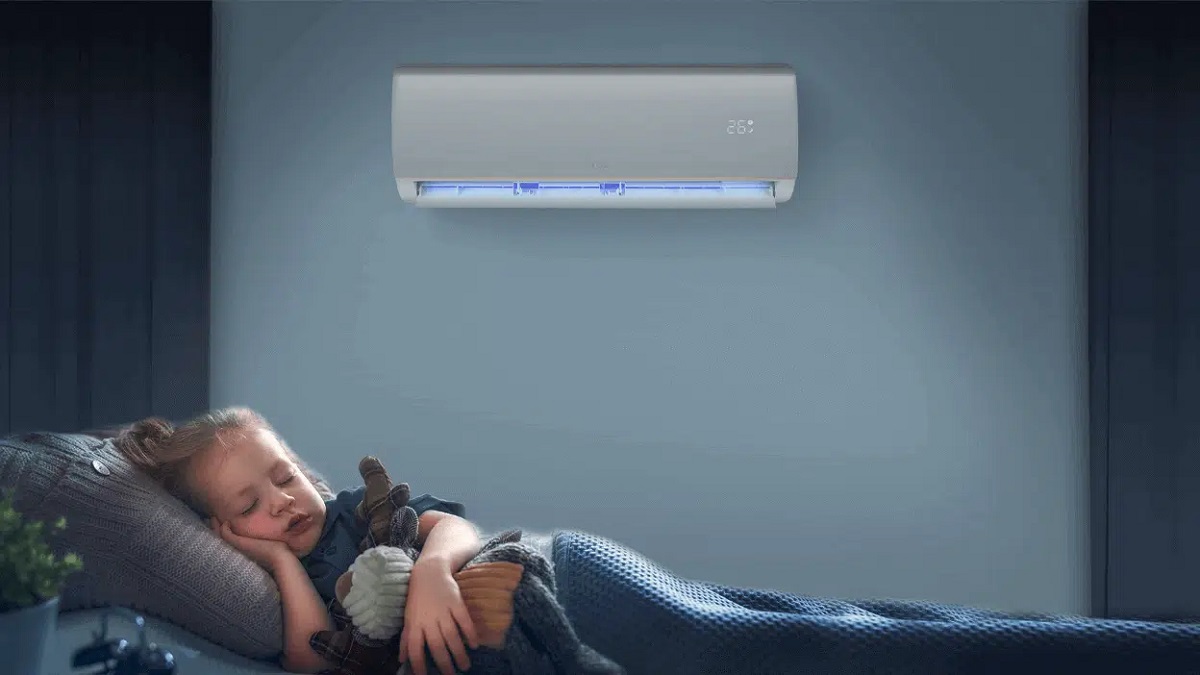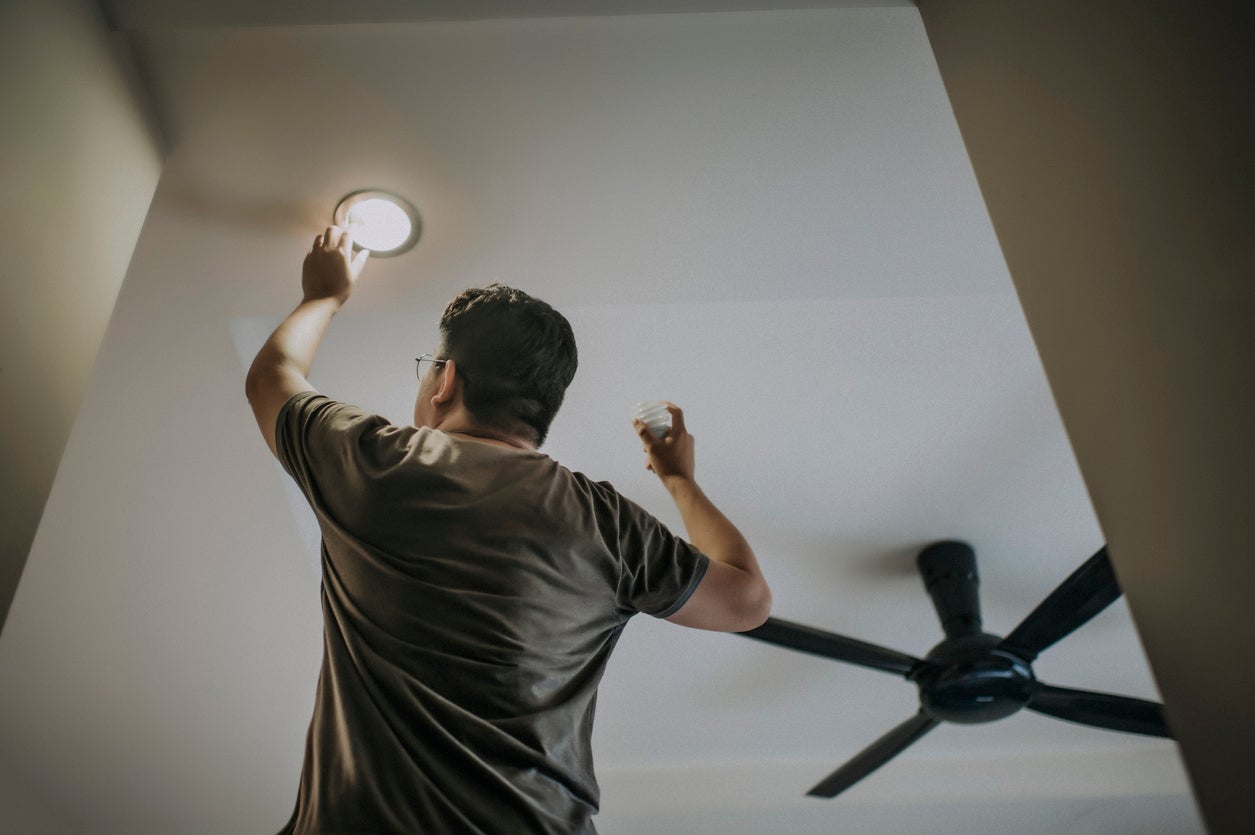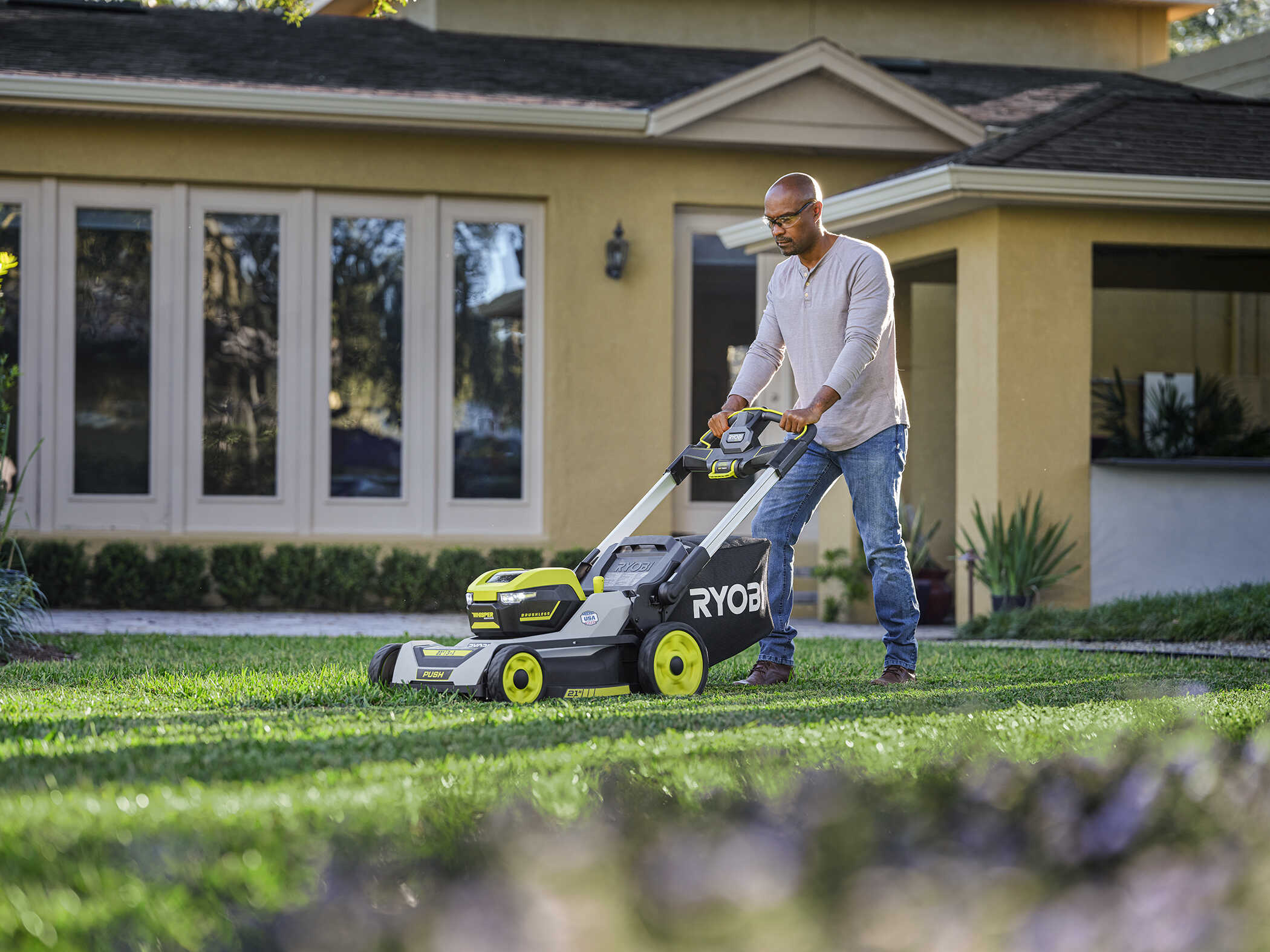Home>Home Maintenance>Should You Turn Off Air Conditioning When On Vacation
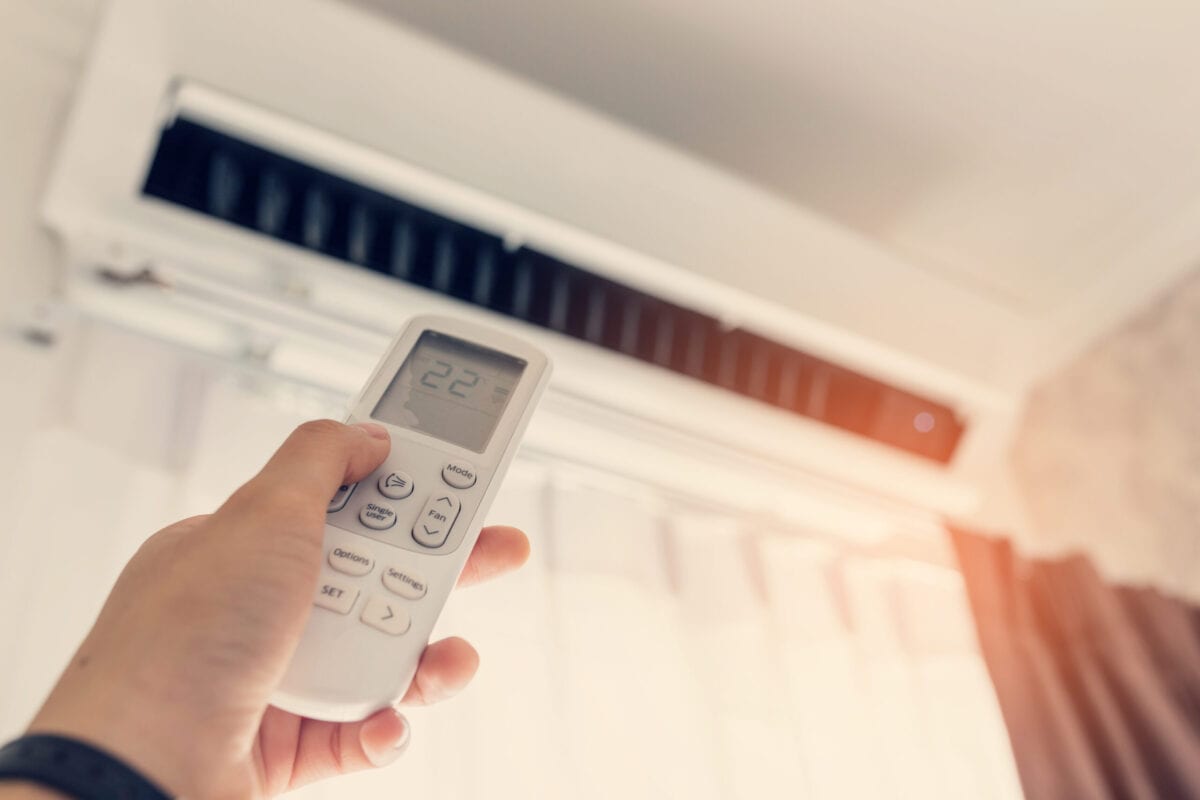

Home Maintenance
Should You Turn Off Air Conditioning When On Vacation
Modified: March 6, 2024
Discover if you should turn off your air conditioning while on vacation and learn about home maintenance tips to keep your house in prime condition.
(Many of the links in this article redirect to a specific reviewed product. Your purchase of these products through affiliate links helps to generate commission for Storables.com, at no extra cost. Learn more)
Introduction
Welcome to the world of home maintenance! In this article, we will discuss an important topic that often sparks debates among homeowners: whether or not to turn off the air conditioning when going on vacation. We all love a comfortable and cool home, but we also want to be mindful of energy consumption and the impact it has on the environment and our wallets. So, let’s dive in and explore the pros and cons of turning off the air conditioning during vacations and the factors you should consider before making a decision.
When it comes to energy conservation, it is crucial to adopt sustainable practices in all aspects of our lives, including maintaining our homes. The continuous use of air conditioning systems contributes to higher energy consumption and increased greenhouse gas emissions. By being mindful of our energy usage, we can reduce our carbon footprint and have a positive impact on the environment.
Before we delve into the details, it is essential to understand how air conditioning systems work and their energy consumption patterns. Air conditioning units function by using refrigerants to absorb heat from indoor air and release it outside, creating a cooler indoor environment. This process requires a significant amount of energy, often from electricity, which contributes to higher energy bills.
Key Takeaways:
- Consider turning off your air conditioning during vacations to save energy, reduce environmental impact, and extend your system’s lifespan. Just be mindful of potential home damage and pest infestations.
- If turning off your air conditioning isn’t practical, try adjusting the thermostat, using programmable settings, or employing energy-saving modes to conserve energy while maintaining a comfortable indoor environment.
The Importance of Energy Conservation
Energy conservation plays a vital role in reducing our overall environmental impact and promoting sustainability. As the effects of climate change become more apparent, it is crucial that we take steps to minimize our energy consumption and reduce our carbon footprint. This includes being mindful of our energy usage, especially when it comes to home appliances like air conditioning systems.
By conserving energy, we can not only help mitigate climate change but also enjoy several other benefits. First and foremost, energy conservation leads to cost savings. By reducing energy consumption, homeowners can lower their monthly utility bills. This can have a significant impact on household budgets and allow for savings to be allocated to other essential expenses.
Additionally, energy conservation helps to decrease the demand for fossil fuels, which are finite resources and contribute to air and water pollution. By using less energy, we can reduce our dependence on fossil fuels and promote the development and use of renewable energy sources, such as solar and wind power.
Conserving energy also has a positive impact on our health and well-being. Air conditioning units, while providing comfort, can also circulate indoor air pollutants and contribute to poor air quality. By using air conditioning more mindfully and reducing our energy consumption, we can improve indoor air quality and create a healthier living environment.
Furthermore, energy conservation promotes sustainable living and sets a positive example for future generations. By being conscious of our energy usage and implementing energy-saving practices, we can inspire others to follow suit. This collective effort can lead to a significant reduction in energy consumption and its associated environmental impacts.
When it comes to residential energy consumption, air conditioning is often one of the largest contributors. Therefore, finding ways to minimize energy usage while maintaining a comfortable indoor environment is essential. One such approach is to consider whether to turn off the air conditioning when going on vacation.
Understanding Air Conditioning Energy Use
Before deciding whether to turn off your air conditioning when going on vacation, it’s important to understand how these systems consume energy. Air conditioning units utilize electricity to power various components, such as compressors, fans, and motors. The energy consumption depends on several factors, including the size of the unit, the desired indoor temperature, and the climate.
One of the key factors that determine air conditioning energy use is the size of the unit. An oversized unit will consume more electricity than necessary and lead to higher energy bills. On the other hand, an undersized unit may struggle to cool the space efficiently, resulting in prolonged operation and increased energy consumption.
The desired indoor temperature also impacts energy use. If you set the thermostat to a lower temperature, the air conditioning system will need to work harder and consume more energy. It’s important to find the right balance between comfort and energy efficiency. Setting the thermostat at a slightly higher temperature can lead to significant energy savings without sacrificing comfort.
Climate also plays a role in air conditioning energy use. In hot and humid climates, air conditioning systems need to work harder to remove heat and moisture from the indoor air. This increases energy consumption. Understanding your local climate can help you make informed decisions about the use of your air conditioning system.
In addition to these factors, the energy efficiency of the air conditioning unit itself is crucial. Older models tend to be less energy-efficient compared to newer models that meet current energy efficiency standards. Upgrading to a more energy-efficient unit can significantly reduce energy consumption and lower your carbon footprint.
It’s worth noting that even when you turn off your air conditioning unit, some passive energy consumption may still occur. This includes standby power used by certain features or sensors. Although this passive energy consumption is typically minimal, it’s important to be aware of it when considering whether to turn off your system during a vacation.
By understanding the various factors that contribute to air conditioning energy use, you can make more informed decisions regarding the operation of your system, including whether or not to turn it off when you’re away on vacation. Let’s now explore the pros and cons of turning off the air conditioning during prolonged absences.
Pros and Cons of Turning Off Air Conditioning
When deciding whether to turn off your air conditioning during vacations, it’s important to weigh the pros and cons. Let’s explore the advantages and disadvantages of turning off your air conditioning system for prolonged periods of time.
Pros:
- Energy Savings: The most significant advantage of turning off your air conditioning is the potential for energy savings. By not running the system while you’re away, you can reduce your energy consumption and lower your utility bills.
- Environmental Impact: By conserving energy, you are minimizing your carbon footprint and contributing to environmental sustainability. Less energy consumption means fewer greenhouse gas emissions and less strain on natural resources.
- Extended Lifespan: Giving your air conditioning unit a break during your vacation can help extend its lifespan. Less frequent usage can reduce wear and tear on the system, leading to fewer maintenance issues and potential savings on repair costs.
- Reduced Risk of Malfunctions: Air conditioning systems are not immune to malfunctions or breakdowns. By turning off your unit during your absence, you decrease the risk of unexpected issues occurring while you’re away. Returning home to a malfunctioning system can be both inconvenient and costly.
Read more: When Should You Turn Air Conditioning On
Cons:
- Uncomfortable Indoor Environment: The obvious disadvantage of turning off your air conditioning is returning to a hot and stuffy home. Depending on the climate and the length of your absence, indoor temperatures can rise significantly, making your return less pleasant.
- Potential Damage to the Home: In locations with high humidity levels, turning off your air conditioning can lead to excessive moisture buildup. This can result in mold growth, damage to wooden furniture, and other issues that could be costly to remediate.
- Pest Infestations: A stagnant, warm home can attract pests such as insects or rodents. Without the air conditioning running, these unwanted guests may find their way into your home and create a nuisance.
Ultimately, whether or not to turn off your air conditioning during vacations depends on various factors, including the duration of your absence, the climate in your location, and personal preferences. Before making a decision, it’s essential to consider these factors and evaluate the potential benefits and drawbacks.
Now that we’ve explored the pros and cons of turning off the air conditioning, let’s discuss the factors you should consider before making a decision.
Factors to Consider Before Turning Off Air Conditioning
Before deciding whether to turn off your air conditioning during vacations, there are several important factors to consider. Taking these factors into account can help you make an informed decision that balances energy conservation with maintaining a comfortable and healthy indoor environment.
Duration of Absence:
The duration of your absence plays a significant role in determining whether you should turn off your air conditioning. If you will be away for just a couple of days, it might be more practical to keep the air conditioning running at a higher temperature setting. Conversely, for longer vacations, it may be more energy-efficient and cost-effective to turn off the system entirely.
Climate:
The climate of your location is another crucial factor to consider. In hot and humid climates, high temperatures can quickly lead to moisture buildup and mold growth. In such cases, it may be advisable to keep the air conditioning running at a higher temperature setting or use a programmable thermostat to maintain a comfortable indoor climate and reduce humidity levels.
Home Insulation:
The insulation of your home greatly affects its ability to retain or repel heat. Well-insulated homes can maintain a more stable indoor temperature, decreasing the need for constant air conditioning. If your home is well-insulated, the impact of turning off the air conditioning during your absence will likely be minimal. However, in poorly insulated homes, the indoor temperature can rise quickly, leading to discomfort upon your return.
Energy Efficiency of the System:
If your air conditioning system is outdated and energy-inefficient, the energy savings from turning it off during vacations may be significant. On the other hand, if you have a modern, energy-efficient system, the energy savings may be relatively small, and other factors, such as maintaining a comfortable indoor environment, may take precedence.
Pets or Plants:
If you have pets or plants in your home, their well-being should also be considered. Certain pets or delicate plants may require a more controlled environment, including consistent temperature and humidity levels. In such cases, it may be necessary to keep the air conditioning running or make alternative arrangements to ensure their comfort and health while you are away.
Security and Safety:
Lastly, the security and safety of your home must be taken into account. In some cases, keeping the air conditioning running at a higher temperature setting can help deter burglars by creating the impression that someone is home. Additionally, certain security systems or fire alarm systems may require a controlled indoor environment, and turning off the air conditioning may not be advisable.
Considering these factors will help you make an informed decision about whether to turn off your air conditioning during vacations or find alternative approaches to minimize energy usage. Furthermore, there are additional tips and strategies you can employ to maintain a comfortable indoor environment while still conserving energy, which we will explore next.
Read more: How To Turn Off An Air Conditioning Unit
Tips for Maintaining a Comfortable Indoor Environment
If you decide to turn off your air conditioning during your vacation, there are several tips and strategies you can employ to maintain a comfortable indoor environment and mitigate the discomfort caused by high temperatures. These recommendations will help you make the most of your energy-saving efforts while keeping your home livable.
Precool Your Home:
Prior to leaving for vacation, consider precooling your home by lowering the temperature a few degrees below your usual comfort level. This will help create a cooler indoor environment that can take longer to warm up, providing temporary relief from the heat when you return.
Use Fans:
Utilize ceiling fans or portable fans to circulate air throughout your home. Fans create a cooling effect and can make the indoor environment feel more comfortable, even without air conditioning. Be sure to turn off fans in unoccupied rooms to save energy.
Close Curtains and Blinds:
Close curtains and blinds during the day to block out sunlight and prevent heat from entering your home. This simple step can substantially reduce the amount of heat that accumulates indoors, helping to maintain a cooler temperature.
Utilize Natural Ventilation:
If the weather permits, open windows and doors during cooler parts of the day, such as early morning or evening, to allow for natural ventilation. This can help bring in fresh air and lower indoor temperatures.
Programmable Thermostat:
If you have a programmable thermostat, take advantage of its features to automatically adjust the temperature during your absence. Set it to increase the temperature during the day and lower it a few hours before your anticipated return, ensuring a comfortable indoor climate upon arrival.
Smart Home Technology:
Consider investing in smart home technology that allows you to control your air conditioning remotely. With a smart thermostat, you can adjust the temperature while you’re away, ensuring that your home is cool and comfortable upon your return.
Maintain Proper Insulation:
To minimize heat transfer, make sure your home is properly insulated. Insulation helps keep hot air out and cool air in, reducing the need for excessive cooling. Inspect and seal any gaps or cracks around doors, windows, and other areas to improve energy efficiency.
Consider Learning from Neighbors:
Consult with neighbors who have experience with turning off their air conditioning during vacations. They may have valuable insights or tips specific to your local climate or community that can help you maintain a comfortable indoor environment while saving energy.
By implementing these tips, you can create a more pleasant indoor environment and minimize the discomfort caused by turning off your air conditioning system. Remember to consider the specific needs of your home and follow applicable safety precautions to ensure a smooth transition during your absence.
Next, let’s explore alternative options to turning off your air conditioning entirely.
Alternatives to Turning Off Air Conditioning
If turning off your air conditioning completely during your vacation doesn’t seem like the best option for your specific circumstances, there are alternative approaches you can consider. These alternatives can help you conserve energy while maintaining a comfortable indoor environment.
Adjust the Thermostat:
Instead of turning off the air conditioning entirely, consider adjusting the thermostat to a higher temperature setting. Raising the temperature by a few degrees can significantly reduce energy consumption while still providing some cooling when you return.
Programmable Thermostat:
Invest in a programmable thermostat if you don’t already have one. These thermostats allow you to set specific temperature schedules based on your daily routines and preferences. Program the thermostat to increase the temperature during your absence and lower it a few hours before your anticipated return. This way, you can ensure a comfortable indoor climate upon arrival without wasting energy while you’re away.
Zoning Systems:
If your home has a zoning system, take advantage of it by only cooling the occupied areas of your home. Close off vents or doors to unused rooms or zones to direct the conditioned air where it’s needed most. This allows you to save energy by not cooling unoccupied spaces.
Use Energy-Saving Mode:
If your air conditioning system has an energy-saving mode, activate it before you leave. This mode optimizes energy efficiency by adjusting fan speeds and reducing compressor usage while maintaining a comfortable indoor climate.
Consider Timers:
Use timers for your air conditioning system to control its operation during your absence. Set the timer to turn on the system a few hours before you plan to return, ensuring that your home is cool and comfortable by the time you arrive.
Curtains and Blinds:
Close curtains and blinds on windows that receive direct sunlight to block out heat. This can help reduce the amount of solar heat gain, keeping your home cooler and reducing the workload on your air conditioning system.
Avoid Heat-Generating Activities:
During your absence, avoid activities that generate heat inside your home, such as cooking with the oven or stove. Opt for meals that require less heat, or consider dining out instead. Minimizing heat-generating activities can help keep your home cooler and reduce the need for excessive air conditioning.
Use Fans:
Utilize fans throughout your home to create a cooling effect and increase comfort. Ceiling fans or portable fans can help circulate the air, making the indoor environment feel cooler. Remember to turn off fans in unoccupied rooms to save energy.
By utilizing these alternatives, you can find a balance between energy conservation and maintaining a comfortable indoor environment during your absence. Consider which options align best with your needs and preferences, and make adjustments accordingly.
Now that we’ve explored alternatives to turning off your air conditioning, let’s conclude our discussion.
Conclusion
Deciding whether to turn off your air conditioning when going on vacation is a personal choice that requires careful consideration of various factors. On one hand, turning off the air conditioning can lead to energy savings, reduced environmental impact, and potentially extend the lifespan of your system. On the other hand, it can result in uncomfortable indoor temperatures, potential home damage, and the risk of pest infestations.
Before making a decision, it’s essential to evaluate the duration of your absence, the climate in your location, the insulation of your home, and the energy efficiency of your air conditioning system. Additionally, factors like pets, security systems, and the well-being of your plants should be taken into account. These considerations will help guide you in determining the best course of action.
If turning off the air conditioning entirely doesn’t seem practical, alternative approaches can be employed. Adjusting the thermostat, utilizing programmable thermostats, employing zoning systems, and implementing energy-saving modes are just a few of the alternatives available. These options allow you to conserve energy while maintaining a comfortable indoor environment.
Other tips such as using fans, closing curtains and blinds, practicing natural ventilation, and maintaining proper home insulation can also contribute to a more comfortable and energy-efficient living space. By implementing these strategies, you can find a balance between energy conservation and comfort.
In the end, the decision to turn off your air conditioning or explore alternative options during vacations is dependent on your unique circumstances and priorities. Consider the pros and cons, evaluate the factors at play, and make an informed choice that aligns with your energy consumption goals and personal preferences.
Remember, energy conservation is a crucial part of promoting sustainability and reducing our carbon footprint. By adopting mindful energy practices, including responsible air conditioning usage, we can contribute to a healthier environment for ourselves and future generations.
Thank you for joining us on this exploration of the pros and cons of turning off air conditioning during vacations. We hope this article has provided useful insights and guidance for your home maintenance journey.
Frequently Asked Questions about Should You Turn Off Air Conditioning When On Vacation
Was this page helpful?
At Storables.com, we guarantee accurate and reliable information. Our content, validated by Expert Board Contributors, is crafted following stringent Editorial Policies. We're committed to providing you with well-researched, expert-backed insights for all your informational needs.
